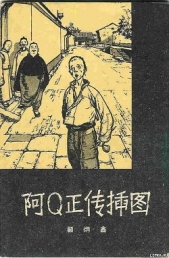One Mans Bible (chinese)

One Mans Bible (chinese) читать книгу онлайн
One Man's Bible is the second novel by Nobel Prize-winning author Gao Xingjian to appear in English. Following on the heels of his highly praised Soul Mountain , this later work is as candid as the first, and written with the same grace and beauty.
In a Hong Kong hotel room in 1996, Gao Xingjian's lover, Marguerite, stirs up his memories of childhood and early adult life under the shadow of Mao Zedong and the Cultural Revolution. Gao has been living in self-imposed exile in France and has traveled to this Western-influenced Chinese city-state, so close to his homeland, for the staging of one of his plays.
What follows is a fictionalized account of Gao Xingjian's life under the Communist regime. Whether in "beehive" offices in Beijing or in isolated rural towns, daily life is riddled with paranoia and fear, as revolutionaries, counterrevolutionaries, reactionaries, counterreactionaries, and government propaganda turn citizens against one another. It is a place where a single sentence spoken ten years earlier can make one an enemy of the state. Gao evokes the spiritual torture of political and intellectual repression in graphic detail, including the heartbreaking betrayals he suffers in his relationships with women and men alike.
One Man's Bible is a profound meditation on the essence of writing, on exile, on the effects of political oppression on the human spirit, and on how the human spirit can triumph.
***
"Admirable dramatic intensity… valuable for its vivid piecemeal picture of 20th-century China 's culture of revisionist egoism, paranoia and repression."
– Kirkus Reviews
"Unforgettable… One Man's Bible burns with a powerfully individualistic fire of intelligence and depth of feeling."
– New York Times
"A remarkable achievement."
– Christian Science Monitor
"One Man's Bible… has come to claim its place as a powerful narrative… of the Cultural Revolution's insidious, corrosive terror."
– New York Times Book Review
"Captivating… a beautifully stirring account of life in an era of political oppression…[One Man's Bible] is an important book,"
– Fort Worth Star-Telegram
"[Gao] paints a stark, unforgiving picture of the results of Mao's regime and of the Cultural Revolution."
– Denver Post
"If the hallmark of a good novel is its ability to transport the reader, willing or not, into unfamiliar or uncomfortable territory, then this novel is a success."
– Denver Post
Внимание! Книга может содержать контент только для совершеннолетних. Для несовершеннолетних чтение данного контента СТРОГО ЗАПРЕЩЕНО! Если в книге присутствует наличие пропаганды ЛГБТ и другого, запрещенного контента - просьба написать на почту [email protected] для удаления материала
54
你不再活在别人的阴影里,也不把他人的阴影作为假想敌,走出阴影就是了,不再
去制造妄想和幻象,在一片虚空宁静之中,本来就赤条条一无牵挂来到这世界,也不用
再带走甚麽,况且带也带不走,只恐惧那不可知的死亡。
你记得对死亡的惧怕从儿时起,那时怕死远超过今天,有一点小病便生怕是不治之
症,一有病痛就胡思乱想,惊慌得不行,如今已经历过诸多病痛乃至於灭顶之灾,还活
在这世上纯属桡幸,生命本来就是个奇迹,不可以言说,活著便是这奇迹的显现,一个
有知觉的肉体能感受到生命的痛苦与欢欣不就够了?还寻求甚麽?
你对死亡恐惧都是在心力衰弱的时候,有种上气不接下气的感觉,担心支撑不到缓
过气来,如同在深渊中坠落,这种坠落感在儿时的梦中经常出现,令你惊醒盗汗,其实
那时甚么毛病也没有,你母亲带你多次去医院检查过,如今则懒得去做体检,那怕医生
叮嘱也一再拖延。
你再清楚不过生命自有终结,终结时恐惧也同时消失,这恐惧倒恰恰是生命的体现,
知觉与意识丧失之时,刹那间就终结了,不容再思考!也不会有甚麽意义,对意义的追
求曾经是你的病痛,同少年时的朋友当初就讨论过人生的终极意义,那时几乎还没怎么
活,如今人生的酸甜苦辣似乎都尝遍,对意义的追索徒然无益只落得可笑,不如就感受
这存在,对这存在且加以一番关照。
你仿佛看见他在一片空虚中,稀微的光亮不知来自何处,也不站立在甚麽确定不移
的土地上,却又像一根树桩,只是没有投影,天地之间的那地平线也消失掉了,或是又
像雪地里一只鸟,左顾右盼,时而凝视似乎在沉思,而沉思甚麽并不清楚,不过是个姿
态,一个多少有点美妙的姿态,存在就是姿态,尽可能适意,张开手臂,屈膝转身,回
顾他的意识,或者说那姿态便是他的意识,便是意识中的你,从中便得到隐约的欢宣口。
没有悲剧,喜剧或闹剧,那都是对人生的一种审美,因人因时困地而异,抒情也大
底如此,此时的情感到彼时,感伤与可笑也可以互换,也不必再嘲弄!自嘲或自我清理
似乎都已经够了,只是静静延续这生命的姿态,努力领略此时此刻的奥妙,得其山口在,
在独处自我审视的时候,至於在他人眼中如何,都不再顾及。
你不知还会做出甚么事情来,又还有甚麽可做,都不用刻意,想做便做,成则可不
成则罢,而做与不做都不必执著,此刻觉得饿了渴了,便去吃喝,当然也照样会有观点
看法倾向乃至愤怒,尚未到愤怒都没力气的年纪,出口然也还会有所义愤,不过没那么
大的激情,可七情六欲依然还有,就由它有去,但再没有悔恨,也因为悔恨既徒劳且不
说损伤自己。
你只看重生命,对生命还有点未了之情,留给自己一点兴趣,有待发现与惊讶,也
只有生命才值得感叹,难道不是这样?





















